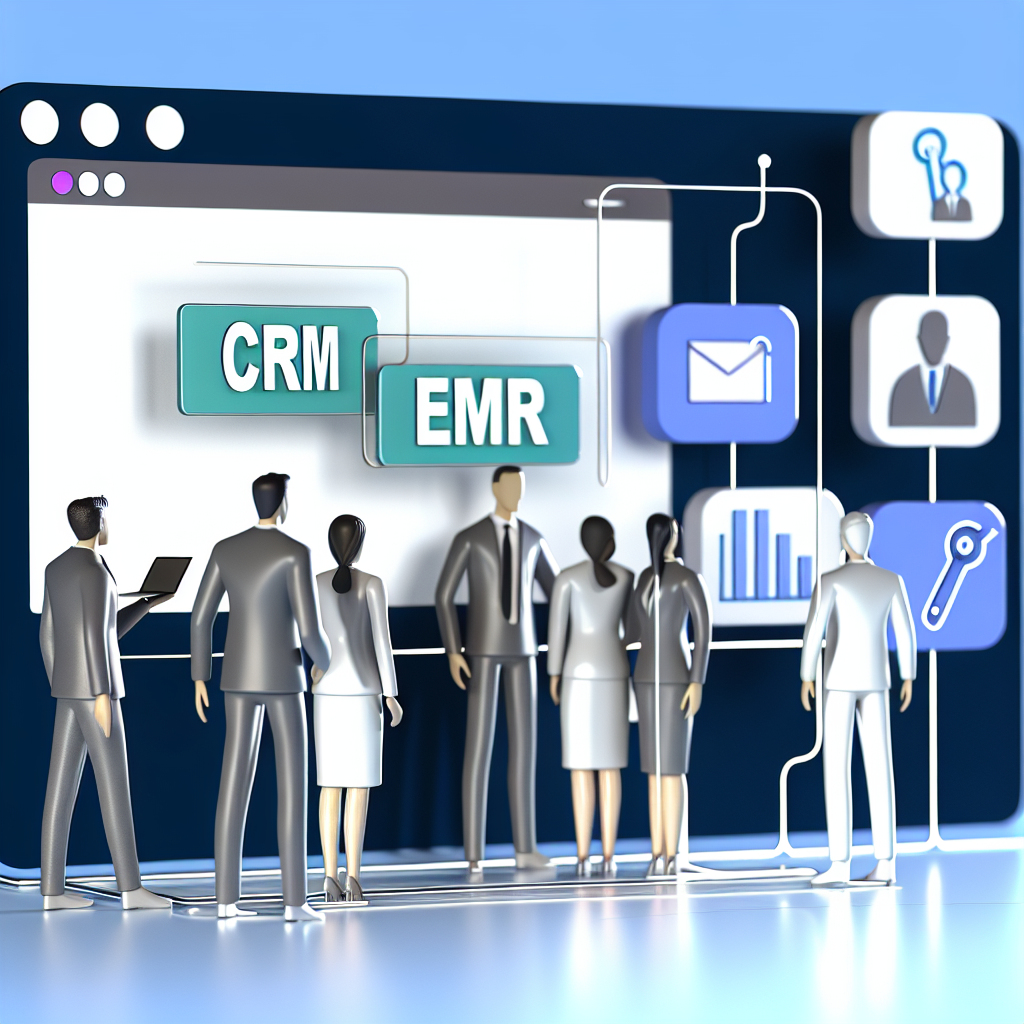
In today’s fast-paced healthcare environment, Human Resource (HR) professionals are increasingly aware of the integral role technology plays in enhancing workflows and patient experiences. Among the myriad tools available, Customer Relationship Management (CRM) and Electronic Medical Record (EMR) systems stand out due to their potential to revolutionise how healthcare providers operate and interact with patients. Understanding these technologies is crucial for HR professionals tasked with optimising human capital while ensuring a high standard of patient care. This blog post delves deep into the fundamentals of CRM and EMR, their significance in the healthcare sector, and the advantages of integrating these systems.
Understanding CRM and EMR
To appreciate the benefits of CRM and EMR, it is essential first to understand what each system entails.
What is CRM?
CRM, or Customer Relationship Management, is a software tool that helps organisations manage interactions with current and prospective customers. In healthcare, this often translates to improving interactions with patients. CRM supports healthcare providers by streamlining processes, enhancing communication, and offering data-driven insights that ultimately lead to higher patient satisfaction and retention rates.
What is EMR?
On the other hand, EMR refers to Electronic Medical Record, which digitally captures a patient’s health information. This includes medical history, diagnoses, medications, and test results. The implementation of EMR systems in healthcare aims to enhance the quality of care, ensuring that relevant patient information is readily accessible to healthcare professionals whenever needed.
The Importance of CRM in Healthcare
CRM systems play a pivotal role in healthcare settings, offering various advantages that significantly benefit both providers and patients.
Enhancing Patient Engagement
Engagement is essential in healthcare. CRM tools empower hospitals and clinics to foster better relationships with patients through personalised communications. Reminders about appointments and medication can be automated, which not only helps keep patients informed but also encourages attendance and adherence to treatment plans.
Optimising Data Management
The capability of integrating CRM with EMR systems enables healthcare providers to manage and access patient data more effectively. This integration ensures that all pertinent information, from medical histories to appointment schedules, resides in an easily accessible location, promoting efficiency across teams.
The Significance of EMR in Modern Healthcare
While CRM focuses on managing relationships, EMR revolves around comprehensive patient record-keeping. Understanding the advantages of EMR systems can help HR professionals advocate for their implementation within their organisations.
Improving Accuracy
One of the most significant advantages of EMR systems is the enhancement of accuracy within patient records. Traditional handwritten notes are prone to human error, but an electronic system reduces such risks. Accurate records lead to better patient outcomes as healthcare professionals can rely on precise information when making treatment decisions.
Fostering Enhanced Collaboration
EMR systems encourage collaboration among healthcare providers. When all team members can access a patient’s medical history and status from a centralised platform, it ensures a unified approach to care. This collaboration ultimately nurtures a more coordinated and effective healthcare strategy.
Bridging the Gap: Integration of CRM and EMR
Combining the capabilities of CRM and EMR systems presents massive opportunities for improving patient care. This integration is critical for healthcare facilities seeking to develop a holistic approach to management.
Benefits of Integration
- Comprehensive Patient Care: An integrated approach allows healthcare providers to seamlessly merge administrative tasks with clinical data, providing a complete picture of patient care.
- Efficient Data Sharing: Seamless data sharing between staff using CRM tools and those using EMR systems streamlines operations, minimising redundant efforts and maximising productivity.
- Analytics and Insights: Integrated systems facilitate deeper analysis of patient interactions, behaviours, and treatment outcomes, empowering providers to enhance care strategies and patient satisfaction.
Current Trends Shaping CRM and EMR
The healthcare landscape is rapidly evolving, influenced by new technologies and methodologies. Emerging trends are transforming how CRM and EMR systems are deployed and utilised.
Cloud-Based Solutions
An increasing number of CRM and EMR systems are moving to the cloud, offering enhanced flexibility and scalability, particularly beneficial for smaller healthcare providers lacking extensive IT infrastructure. This transition allows organisations to access their systems from virtually any location while reducing operational costs associated with maintaining on-premise solutions.
Artificial Intelligence (AI)
AI’s potential in CRM and EMR systems is vast and growing. By harnessing AI, healthcare professionals can analyse large datasets, predict patient outcomes, and tailor recommendations for treatment, thus further personalising patient care.
Promoting Interoperability
As various systems develop, ensuring interoperability becomes increasingly vital. Current trends highlight the drive for standardized protocols that facilitate smooth data exchanges among diverse healthcare systems, helping to unify the healthcare delivery process.
Key Benefits of Integrating CRM and EMR
The union of CRM and EMR systems transcends operational efficiencies, leading to substantial benefits that resonate throughout the healthcare ecosystem.
- Improved Efficiency: By reducing administrative burdens, this integration allows healthcare providers to dedicate more time to patient care, enhancing the overall quality of service.
- Enhanced Patient Experience: Patients enjoy a more streamlined communication process and increased access to their medical records, contributing to their satisfaction and trust in healthcare providers.
- Informed Decision-Making: Having access to combined data enables healthcare providers to make more well-informed decisions regarding patient care, ultimately resulting in better health outcomes.
Conclusion
As HR professionals navigate the complexities of modern healthcare, understanding the synergy between CRM and EMR systems is invaluable. These technologies are not just tools but pivotal elements that can facilitate a transformative approach to patient care. Their integration streamlines workflows, enhances patient engagement, and fosters collaboration among healthcare teams. Embracing these innovative solutions will undoubtedly place healthcare providers at the forefront of advancements that prioritise patient well-being.
For further insights into implementing CRM and EMR systems effectively, you can visit our resources:
Vadim Kouznetsov is a distinguished entrepreneur and the visionary founder and CEO of JobXDubai.com, the UAE’s rapidly expanding job board. Renowned for his expertise in bridging the gap between job seekers and employment opportunities, Vadim has become a leading authority in the recruitment and job market of Dubai.
